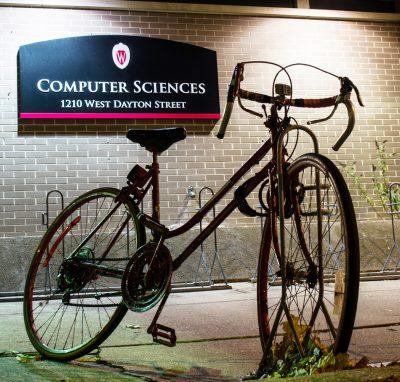The School of Computer, Data and Information Sciences at the University of Wisconsin has added a data science major to meet rising demand for education and research in the field.
CDIS is adding the major to give UW students the opportunity to get involved in one of the country’s fastest growing career fields. CDIS Director Tom Erickson and program leader Bret Larget hope the major will interest students of all disciplines as they believe data science can be applied to a variety of fields and careers.
CDIS is also planning to add a certificate in data science in the future.
“It’s a skill that, really, almost anyone on campus is going to need,” Erickson said. “You might be studying astronomy, biochemistry or music, and you might take a certificate in data science as well. Many, many disciplines do data analysis now.”
For the data science major, students will take foundational math and data courses before moving into higher level data science electives related to topics like statistical modeling, linear algebra, and data ethics. For students planning to major in data science, it is recommended to take introductory calculus, data programming and statistics sequences which will all be required for the major.
Larget hopes to identify classes within other majors and schools that also have a focus on data analysis to include as elective options for the major or future certificate. More information on specific elective classes will be available July 1st, 2020.
“The intention of the program committee is to have courses where students can apply data science techniques across the curriculum,” Larget said. “The committee will seek out courses in different departments, such as economics, journalism and biology, places where students within those disciplines are using data science to uncover information within whatever domain they happen to be studying.”
With a degree or certificate in data science, Erickson believes finding a career in almost any industry could be possible as data analysis plays a role in a variety of jobs and companies.
Erickson said examples of data science related jobs students could potentially get after graduation range from working with healthcare companies to analyze medical research data to offering companies financial help by analyzing money flow, to condensing survey data for articles at a newspaper.
“It’s not so much what career path could [a student] have, but what career path wouldn’t you have?” Erickson said.
The addition of the data science major is part of UW’s commitment to becoming a leader in big data, technology research and education, which started with the creation of CDIS. Chancellor Blank argued it is important the university shape research and lead in this field as data and information science becomes more important in our everyday lives in a news release.
Erickson said moving forward, the goal of CDIS is to continue to increase class capacity for data, computer and information science courses to give all students the opportunity to participate even if they are not in the major. Erickson also said the school plans to introduce interdisciplinary programs and majors in the future.
“Some of the things we are looking at that are interesting are, what does retail and data science look like, or what would health care and data science look like…and create new courses and probably new majors in the future that will allow more and more people to take advantage of these capabilities,” Erickson said.
Erickson also stated because data has such an immense impact on society, data ethics will be important to the major as well. Larget listed courses in data ethics as part of the foundational learning for the major.
Both Larget and Erickson agree that as UW expands education on this topic, it will be important for the school to teach students how to use data science ethically.
“A big challenge is the impact [data science can] have on society, and you can see it with things like fake news and data privacy issues,” Erickson said. “We are going to do a lot more work with the ethics of data, data bias … and social justice associated with data science.”
Students will be able to declare the major starting fall semester 2020 and are able to meet with an advisor for more information. Larget suggested students who are interested should meet with Sara Rodock, an advisor in the statistics department, or himself to learn if the data science major is right for them.
There is also a website up for the major on UW’s department of statistics page.
“We are very excited about the program and the opportunity this campus has to improve access to data science for all students,” Larget said.


